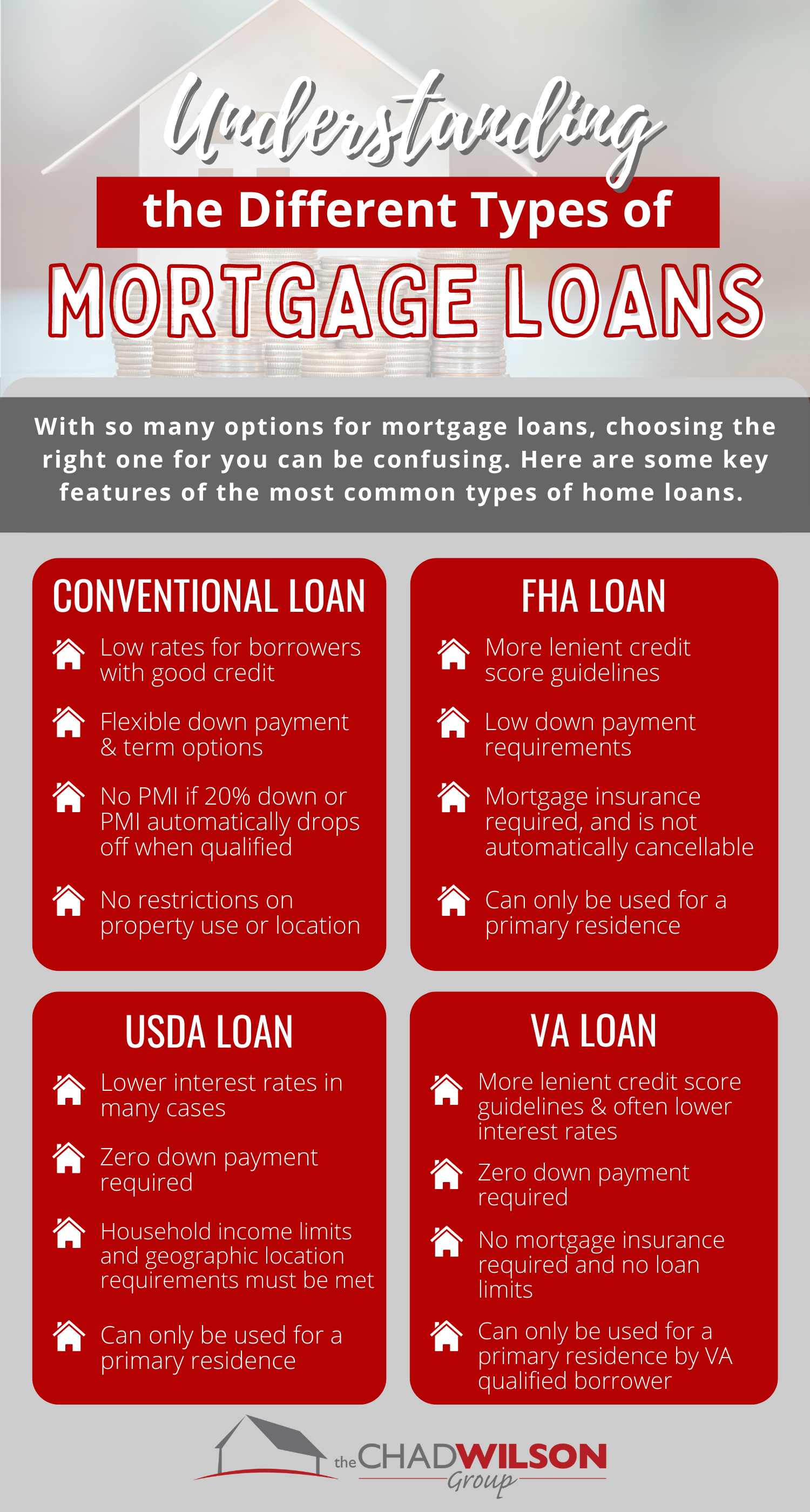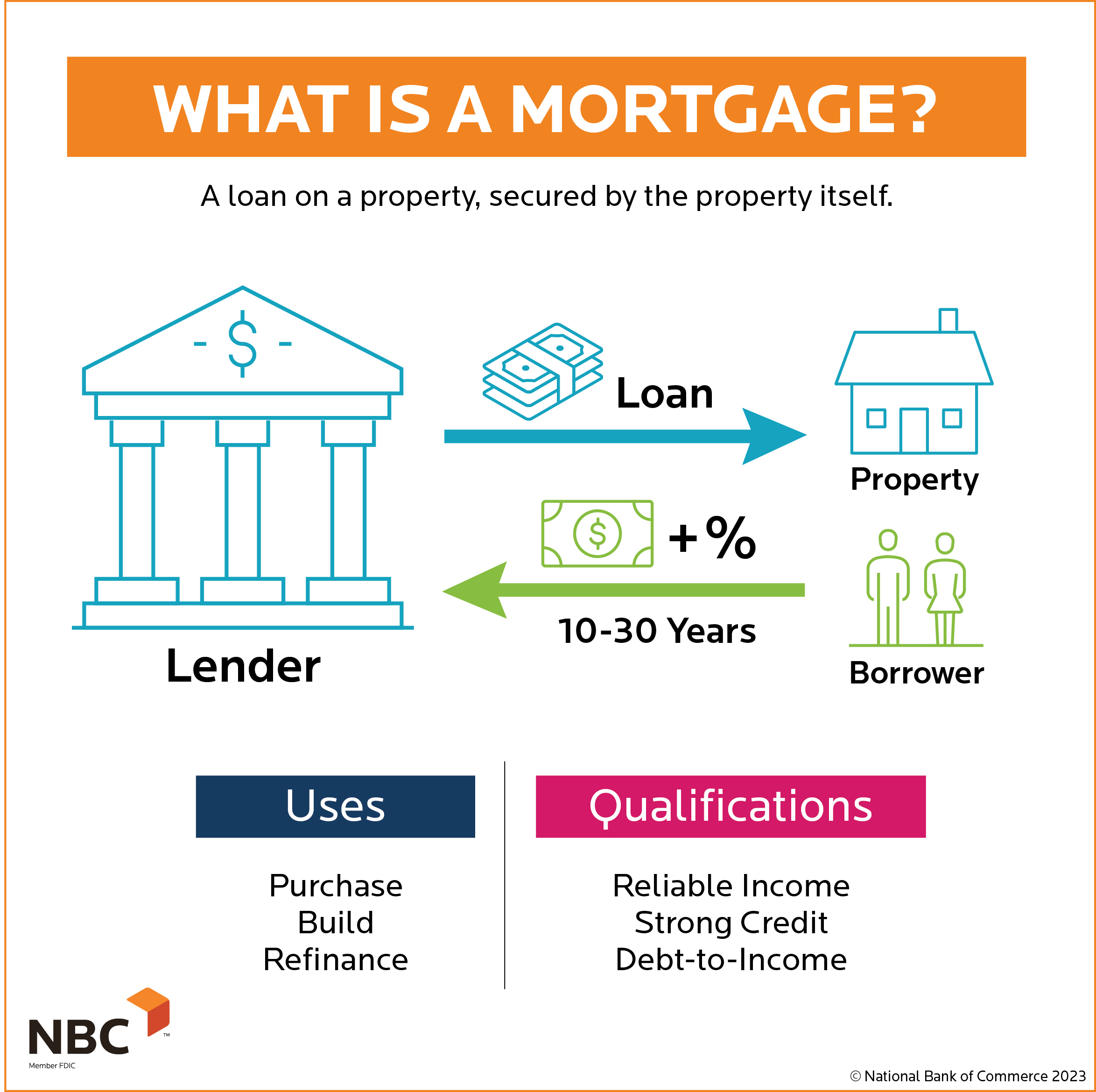Understanding the Numerous Kinds Of Home Loan Lendings Readily Available for First-Time Homebuyers and Their Distinct Advantages
Browsing the variety of home mortgage financing alternatives readily available to new buyers is essential for making informed economic choices. Each kind of finance, from standard to FHA, VA, and USDA, offers special benefits tailored to diverse buyer needs and circumstances.
Standard Fundings
Conventional financings are a foundation of home mortgage financing for newbie buyers, offering a reliable choice for those aiming to purchase a home. These finances are not insured or ensured by the federal government, which identifies them from government-backed car loans. Commonly, conventional fundings call for a higher credit rating and a more considerable deposit, often ranging from 3% to 20% of the purchase cost, relying on the lender's requirements.
One of the considerable benefits of standard lendings is their versatility. Debtors can select from numerous loan terms-- most typically 15 or thirty years-- enabling them to align their home loan with their monetary objectives. Furthermore, standard financings might offer reduced rates of interest contrasted to FHA or VA financings, especially for borrowers with solid credit scores profiles.
Another benefit is the lack of ahead of time home mortgage insurance policy costs, which are usual with federal government finances. Nonetheless, personal home loan insurance (PMI) may be called for if the down settlement is much less than 20%, but it can be removed as soon as the debtor accomplishes 20% equity in the home. Overall, standard finances provide a appealing and practical funding choice for first-time buyers seeking to browse the home loan landscape.
FHA Car Loans
For many newbie homebuyers, FHA financings represent an accessible path to homeownership. Guaranteed by the Federal Housing Management, these fundings provide versatile credentials requirements, making them excellent for those with restricted credit rating or reduced income degrees. One of the standout functions of FHA financings is their low deposit requirement, which can be as low as 3.5% of the acquisition cost. This dramatically decreases the monetary obstacle to entry for lots of ambitious house owners.
Furthermore, FHA finances enable greater debt-to-income ratios compared to conventional fundings, suiting consumers who may have existing financial obligations. The rates of interest connected with FHA financings are often competitive, further enhancing affordability. Customers also take advantage of the ability to include certain closing costs in the lending, which can relieve the upfront financial burden.
However, it is necessary to keep in mind that FHA loans require home mortgage insurance policy costs, which can boost regular monthly repayments. Despite this, the general benefits of FHA car loans, including accessibility and reduced preliminary expenses, make them a compelling alternative for new property buyers seeking to enter the realty market. Understanding these loans is essential in making educated decisions about home funding.
VA Loans
VA finances use a distinct financing option for eligible experts, active-duty solution members, and particular members of the National Guard and Gets. These finances, backed by the U.S - Conventional mortgage loans. Department of Veterans Matters, offer numerous advantages that make own a home a lot more available for those that have offered the nation
Among the most substantial benefits of VA loans is the lack of a deposit need, allowing certified customers to fund 100% of their home's purchase cost. check my site This feature is especially advantageous for newbie property buyers that may battle to conserve for a considerable down repayment. Additionally, VA financings normally include affordable rate of interest, which can result in decrease month-to-month repayments over the life of the car loan.
Another notable benefit is the absence of private mortgage insurance (PMI), which is usually needed on conventional loans with reduced deposits. This exemption can result in substantial financial savings, making homeownership a lot more economical. Furthermore, VA financings use flexible credit rating needs, allowing borrowers with reduced credit rating to qualify even more easily.
USDA Financings
Exploring financing choices, newbie buyers may discover USDA financings to be a compelling option, specifically for those wanting to acquire residential or commercial property in rural or rural areas. The United States Department of these details Agriculture (USDA) provides these fundings to promote homeownership in assigned rural regions, supplying an exceptional chance for qualified customers.
Among the standout attributes of USDA financings is that they require no deposit, making it easier for novice buyers to enter the housing market. Additionally, these fundings usually have competitive rates of interest, which can cause reduce month-to-month settlements contrasted to standard funding choices.
USDA fundings also include flexible credit history requirements, allowing those with less-than-perfect credit scores to certify. The program's income limitations ensure that help is directed towards reduced to moderate-income families, have a peek at these guys additionally supporting homeownership goals in country communities.
Additionally, USDA lendings are backed by the federal government, which reduces the danger for lending institutions and can improve the authorization process for customers (Conventional mortgage loans). As an outcome, first-time property buyers taking into consideration a USDA funding might find it to be a useful and obtainable choice for attaining their homeownership dreams
Special Programs for First-Time Purchasers
Several first-time homebuyers can take advantage of unique programs created to help them in navigating the complexities of purchasing their first home. These programs commonly give financial incentives, education, and resources tailored to the distinct requirements of newbie customers.

Moreover, the HomeReady and Home Possible programs by Fannie Mae and Freddie Mac deal with reduced to moderate-income purchasers, providing flexible home mortgage choices with reduced home mortgage insurance coverage costs.
Educational workshops organized by different organizations can additionally help new purchasers understand the home-buying procedure, improving their opportunities of success. These programs not only alleviate monetary burdens yet also encourage buyers with expertise, ultimately assisting in a smoother transition right into homeownership. By exploring these unique programs, first-time property buyers can discover useful resources that make the desire for possessing a home much more possible.
Conclusion

Conventional car loans are a foundation of mortgage funding for newbie property buyers, offering a dependable option for those looking to purchase a home. These financings are not guaranteed or ensured by the federal government, which differentiates them from government-backed fundings. Furthermore, conventional loans might use lower rate of interest rates contrasted to FHA or VA finances, particularly for borrowers with solid credit report profiles.
In addition, FHA fundings allow for greater debt-to-income ratios contrasted to conventional financings, fitting borrowers that may have existing monetary obligations. Furthermore, VA lendings commonly come with affordable interest prices, which can lead to lower regular monthly payments over the life of the finance.
Comments on “A Total Introduction of Conventional Mortgage Loans for First-Time Purchasers”